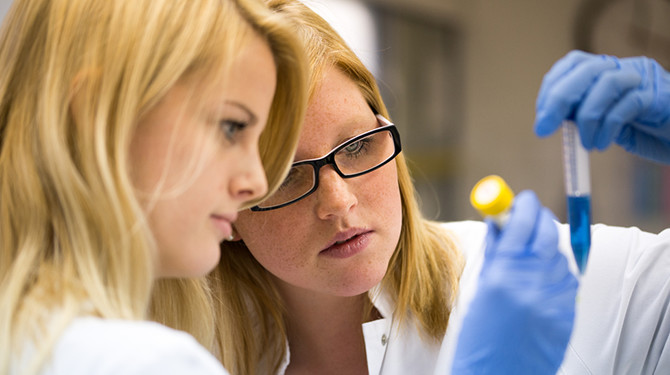Clearing Science Courses

Getting onto a Science course through Clearing 2023
Budding scientists are often pretty passionate and involved in their subjects and it may be impossible to imagine a future that doesn’t include going to uni to immerse yourself in science and lab work for three or four years. The trouble is, many science-based courses have some scary entrance requirements, with many universities looking for ABB or better.
What if you haven’t made your predicted grades – do students get places on Science courses through Clearing? Read our guide to getting in to the thousands of Clearing Science courses that are available.
Clearing can be a way to a scientific future
Just a shade under 14,000 science students got their uni place through Clearing in 2016:
- 1,800 students won a place to study Physics and Physical Sciences.
- 3,250 engineers got a Clearing place.
- 4220 Biological Sciences students were successful in Clearing.
- 4721 students ended up on a Biological Sciences course.
This should set your mind at rest. If results day dawns and you find that you have dropped a grade or two and your first choice universities reject you, there will be plenty of opportunities through Clearing in 2018.
Maximise your chances of a Clearing place in the Sciences
Unlike a potential arts student, you can’t really go about creating or expanding your portfolio or practising your science (taking the TV apart or doing biochemistry in the kitchen will get you into a heap of trouble), but that doesn’t mean you can just sit back and relax.
Get some work experience with scientific relevance: You might have to think a bit creatively here, but why not try to see if a local pharmacy, pet food company, engineering works, power station, or whatever you have locally has any holiday jobs available. Or even a voluntary short-term work placement. Even shadowing one of the employees for a day might be an option.
Start a science blog: All students need to have excellent IT and communications skills and you will have done web site creating and blog creation right back to GCSE. Use some of your spare time this summer to set up a free blog and start commenting on science stories in the news. Not only is this fun, it keeps you up to date with scientific developments AND you have something to show admissions tutors if you enter Clearing in August.
Get some reading in: If you do apply for a Science course through Clearing you will want to impress the admissions tutor that you speak with on Clearing day with your up-to-date science knowledge. The exciting thing about science is the pace – keeping up takes effort. And remember, it’s not just journals and magazines, online news outlets feature science and medical news and there are huge numbers of science sites crammed with the latest research info.
Research some alternatives: Get onto the university websites and course search facilities and create a new shortlist of options that you could pursue through Clearing.
Get interactive: Many scientific departments at universities have Facebook and Twitter accounts – sign up and start interacting with them. It’s another good thing to mention during your Clearing phone call, and/or subsequent dealings, with your university.
Scientific reasoning for results day
Maintaining a logical approach to your future is best. This is not the time to become a drama student. If your results are not as good as you hoped and that Clearing button pops up on your UCAS track, have your ready-prepared short-list to hand and take a deep breath. Check the availability of clearing places and, as soon as the Clearing hotlines at your top choice university open, get dialling.
Clearing has a huge number of good, reputable Science course places available and if you keep your head, you can easily claim one of them.

